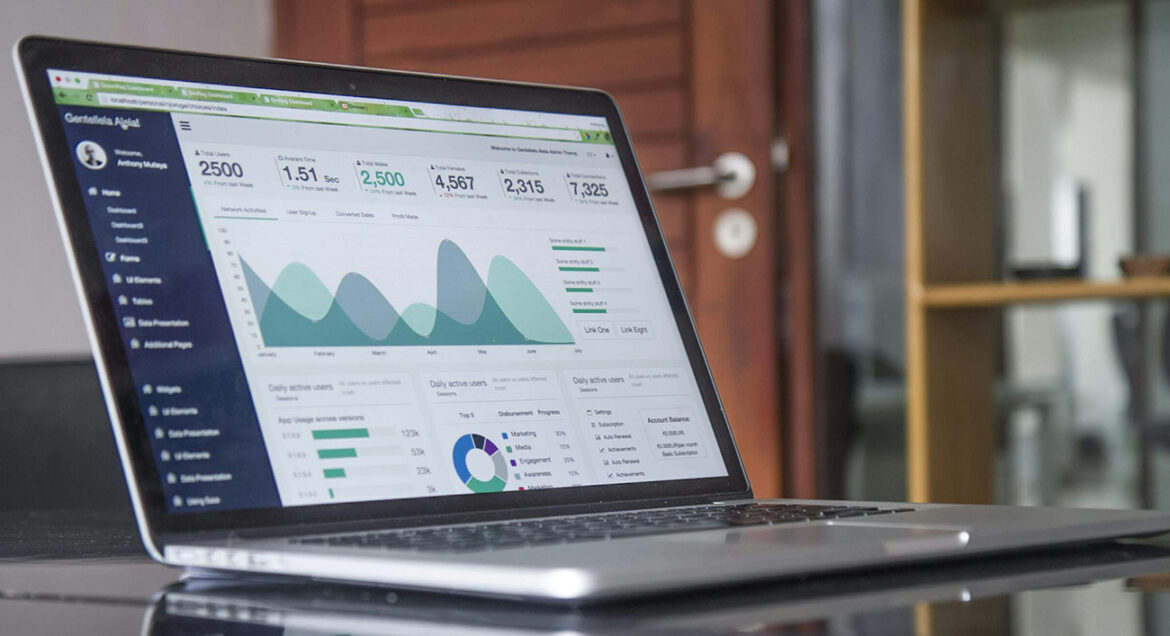Data is everywhere. Businesses, governments, universities, even individuals are generating vast amounts of it. But raw data, on its own, isn’t particularly useful. That’s where the data analyst comes in. They’re the detectives, translators, and storytellers of the data world, turning complex numbers into clear, actionable insights. It’s a role that’s seeing significant growth in demand across various industries.
Perhaps you’ve heard about the field, or maybe you’re already working with data in some capacity and want to specialise. You might be wondering if you need a specific degree or years of experience to get started. In my experience, while those things can certainly help, they’re not the only route, and increasingly, employers are open to candidates who demonstrate the right skills and passion.
So, how exactly do you become a data analyst, especially if you’re starting from scratch? Let’s break it down.
Key Takeaways
- Data analysts turn raw data into insights: They help drive business decisions with clear, actionable findings.
- Skills matter more than degrees: Employers value technical skills, communication, and a strong portfolio over formal education.
- Key tools include Excel, SQL, Python, and BI tools: Analysts also need to clean, analyse, and visualise data effectively.
- Projects and portfolios are essential: Real-world examples show your capabilities and are often more important than certifications alone.
- You can start with no experience: Online courses, certifications, and self-led projects can launch your data analyst career.
What Do Data Analysts Do?
At its heart, data analysis is about using data to support strategic business decisions. Data analysts identify relevant data, collect it from various sources, clean and prepare it, analyse it to find patterns and anomalies, and then interpret their findings. A crucial part of the job is then communicating these insights to stakeholders who may not have a technical background, enabling data-driven decision-making. This ability to translate complex findings into understandable language and demonstrate the value of the analysis is highly prized.
Day-to-day tasks can involve developing data collection systems, working with management to identify key metrics (KPIs), filtering and cleaning data, identifying trends, creating visualisations and reports, and building and maintaining dashboards.
The Essential Skills You’ll Need
To excel as a data analyst, you’ll need a blend of technical prowess and softer skills.
Technical Skills:
- Proficiency in spreadsheet software: Tools like Microsoft Excel or Google Sheets are fundamental for organising data, performing calculations, and graphing findings. You’ll need to be comfortable with functions like pivot tables, VLOOKUP/INDEX-MATCH, and general data manipulation.
- Querying Languages: SQL (Structured Query Language) is essential for creating and managing data in relational databases. You should understand concepts like JOINS, WHERE clauses, CASE statements, GROUP BY, and aggregations, and ideally more advanced topics like temp tables, CTEs, and window functions. Some roles might also use SAS or Oracle SQL.
- Programming Languages: Python or R are widely used for more complex analysis, statistical modelling, and automation. Python is often used for data modelling and visualisation, while R is popular for statistical calculations.
- Data Visualisation Tools: Learning to use tools like Tableau or Power BI is key for transforming insights into accessible visualisations like charts, graphs, and dashboards. These tools help users quickly understand important information. Tableau Public is a free option for publishing projects, whereas Power BI typically requires payment for public sharing.
- Data Cleaning and Preparation: A significant portion of a data analyst’s time is spent cleaning data. You need a process for handling missing data, outliers, duplicates, and inconsistencies.
- Statistical Methods: Basic competency in statistics is required for entry-level roles. Understanding how statistical analysis ties into business goals is important.
- Understanding Data Concepts: Familiarity with concepts like fields, records, tables, ETL processes, relationships, and keys in data tables is beneficial.
Soft Skills:
- Communication and Presentation: Being able to clearly explain technical findings to non-technical colleagues is crucial. This often involves storytelling with data.
- Problem-Solving and Analytical Mindset: Data analysts are fundamentally problem solvers, using data to answer questions and identify issues. You need to be comfortable thinking logically and working with numbers.
- Curiosity and Attention to Detail: A natural curiosity helps you dig deeper into data and find new opportunities. Attention to detail is vital for accuracy, especially during data cleaning.
- Business Acumen: Understanding the company’s business goals and industry helps you tie your analysis back to driving value.
- Collaboration and Teamwork: Data analysis often involves working with others, both within a data team and across different departments.
- Adaptability and Teachability: The tech field is always changing, so being willing to continuously learn and adapt is important.

How To Become a Data Analyst With No Experience or Degree
This is a very common path these days, and absolutely achievable. The key is to focus on building demonstrable skills and showcasing them effectively.
Here’s a step-by-step guide:
- Build a Foundational Education: While a degree in a related field like Maths or Computer Science is traditional, it’s no longer the only option. Many successful analysts gain their foundation through online courses, professional certificates, bootcamps, or self-study. These alternatives can provide the necessary skills and knowledge in a more focused and flexible way.
- Develop Your Technical Skills: As listed above, gain proficiency in Excel, SQL, at least one BI tool (like Power BI or Tableau), and ideally Python or R. There are countless online resources, tutorials, and courses available for self-learning.
- Work on Projects with Real Data: This is perhaps the most critical step if you lack formal experience. Practical experience is key to learning how to find value in data. Don’t wait for a job; find real-world data sets (many public ones are available from government sites, NASA, Kaggle, etc.) or even scrape your own from websites that interest you (remembering terms of service!). Apply the data analysis process: collect/scrape, clean, analyse, interpret, and visualise.
- Create a Strong Portfolio: Your portfolio is your resume when you lack traditional experience. It’s where you demonstrate your skills to hiring managers. Aim to showcase projects that highlight your ability to:
- Scrape or collect data.
- Clean and prepare raw data.
- Analyse data to find insights.
- Visualise your findings effectively.
- Tell a story with the data and draw actionable insights. This is a major differentiator.
- Consider including “mini-projects” focusing on individual skills or steps, as well as potentially one end-to-end project where you handle the entire process.
- Host your projects on platforms like GitHub for code and documentation, and potentially Tableau Public or other sites for dashboards. A well-curated portfolio shows you took initiative and allows interviewers to ask about your process.
- Include an “About Me” section to add a personal touch and explain your interest.
- Identify and Emphasise Transferable Skills: Think about your previous roles or life experiences. Do you have strong research, problem-solving, communication, or organisational skills? These are valuable assets in data analysis. Highlight how these skills translate to the data world on your CV and in interviews.
- Practise Presenting Your Findings: Data analysts need to communicate effectively. As you build your portfolio projects, practise explaining your process, findings, and what they mean to someone without a technical background. Think about the message and the visuals.
- Network: Connect with people in the field. Attend industry events (online or in person), connect on LinkedIn, and consider informational interviews. Networking can lead to job opportunities and valuable advice.
- Continuously Learn: The field evolves rapidly. Stay updated on new tools, technologies, and trends through industry publications, blogs, and further courses.
By focusing on these steps, you can build a strong foundation and demonstrate your capabilities to potential employers, even without a traditional degree or prior job title in data analysis.
Which Courses and Certifications Are Recommended?
Educational pathways are more diverse than ever. University degrees provide a solid academic foundation, but professional certificates and bootcamps offer a more direct route to job-ready skills.
A data analytics certification is a formal way to verify your skills and adds credibility, particularly for entry-level roles. However, it’s crucial to choose a reputable programme with a practical, up-to-date curriculum that helps you build a portfolio. Simply having a certificate without demonstrable projects might not be enough in a competitive market.
Some widely mentioned certifications and programmes include:
- Google Data Analytics Professional Certificate (Coursera): Often cited as a good starting point for entry-level skills, it includes hands-on projects and helps build a portfolio.
- CareerFoundry Data Analytics Program: This programme is highlighted for beginners and career changers, offering a comprehensive curriculum, mentorship, portfolio projects, career coaching, and a job guarantee.
- Noble Desktop’s Data Analytics Certificate: Mentioned as an alternative to traditional degrees, focusing on industry-relevant skills.
- Other reputable options: Sources also list programmes from Springboard, Wharton, Cloudera, BrainStation, Harvard, Chegg Skills (formerly Thinkful), General Assembly, MIT, Cornell, Turing College, and DataCamp.
When choosing a certification, consider the mode of study (online/in-person), duration, price, and critically, whether it’s project-based and helps you build a portfolio. Research potential employers to see if they list specific certifications as preferred.
What Is The Typical Data Analyst Salary?
Salary expectations can vary significantly based on location, industry, and experience level. The sources provide some insights into salaries in the US.
According to data from Indeed, the average base salary for a junior data analyst in the United States is $73,404 USD. This is noted as considerably higher than the US national average income.
Getting Hired: Applications and Interviews
Once you have the skills and a portfolio, it’s time to apply for entry-level positions. Don’t be afraid to apply even if you don’t meet every single requirement; skills, portfolio, and enthusiasm can outweigh a perfect match on paper.
When preparing for interviews:
- Be ready to talk about your projects in detail, explaining your thought process, challenges, and what you learned.
- Anticipate common data analyst interview questions, including technical ones about SQL, statistics, and software, as well as general questions about your background, why you want to be a data analyst, and how you handle data problems.
- When asked about your process for solving a problem or cleaning data, think out loud to show your reasoning.
- Demonstrate your business understanding by tying your analysis back to potential value for the company.
- Prepare insightful questions to ask the interviewer about the team, company culture, goals, or their favourite aspects of working there. This shows engagement.
- Be prepared for basic stats questions and technical tests.
Hiring managers often look for candidates who are self-motivated and demonstrate a genuine interest in data and analysis. Highlight your accomplishments and the impact of your work, even from non-data roles, using numbers and percentages where possible. Tailoring your CV and applications to the specific role and industry can also make you stand out.
Becoming a data analyst is a rewarding career path with strong demand. While the traditional degree route is still valid, there are now numerous effective ways to gain the necessary skills and experience, particularly through project-based learning and building a compelling portfolio.
It might take time and dedication, but by focusing on building a solid technical foundation, developing those crucial soft skills (especially communication!), getting hands-on with real data projects, and effectively showcasing your abilities, you can absolutely forge a successful career in this exciting field.
Good luck on your journey!
